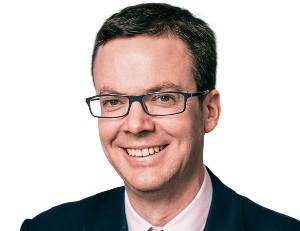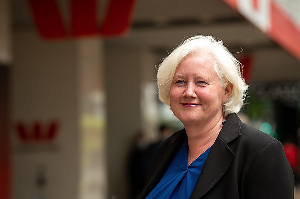
FNZ has reported a US$550.2 million loss for the year ending December 31 but it’s all part of its global expansion plans.
While the loss is a big number it has to be put into perspective with its investment in expansion. Not to be ignored is that its revenue grew 57% to US1.49 billion in the 2023 year.
Chief executive and founder, Adrian Durham, told Good Returns that while the company overall made a loss the financial performance of its core business "is highly profitable".
He says FNZ has EBITDA of around US$300 million, from US$1.4 billion of gross revenue.
The platform provider, which was established in New Zealand in the early 2000s, has moved its company registration from the Cayman Islands to New Zealand two years ago.
Durham said it didn’t feel right of fit with the company’s values to be domiciled in a tax haven.
Historically the company has a series of private equity investors and in 2009 it moved to the Cayman Islands.
“The main purpose of that is so the private equity shareholders can enter and exit without paying withholding tax basically. So they can reflect the taxation on the country they're based, but not have to lose money on the way through.”
“As we got to scale, really scale, the business, three or four years ago, we realised that...it wasn't really consistent with our brand image and mission as a firm to have the holding company in a country which, essentially, is a tax-favoured jurisdiction.”
He says it was not helpful as FNZ is “a consumer-friendly, consumer-aligned (business)” with the aim of improving outcomes for consumer and wealth management firms.
FNZ grew strongly in the United Kingdom and decided to expand widely and rapidly.
“We strategically decided that we'd like to see if we can replicate that (UK) success in other key savings, investment, retirement markets and the two largest of the EU, particularly the wealthier countries inside the EU, the United States and Canada.
“We didn't want to spend another 15 or 16 years doing each of those countries.”
Durham says the difficulty of cross-border expansion is very complex.
Its growth strategy included making a number of acquisitions and investing to localise its global platform to each of those countries.
It is “a very complex proposition.”
“I don't think anyone's ever done it before. Maybe some companies have got as far as one or two countries, but they've never done the 26 that we've done.”
“We knew that would take a lot of capital, so we raised a lot of capital to do that. I think at the beginning of 2022, we raised in US dollars about one and a half billion to progress that.”
We raised a significant amount of debt as well, and we used that to make all those acquisitions, with about 23 acquisitions in total, and to invest in globalising our platform to all of those markets.
I think where we are now is that we've completed those acquisitions. We haven't finished integrating all of them. So there's still a lot of money being spent in 2024, which you won't see in the accounts until next year on integrating those businesses, realising synergies and re-platforming some of them still onto our global platform.
But we finished all the new countries apart from one. So those expenses and the related expenses will roll off mostly this year, a little bit into next year. And provided we execute the rest of that with minimal delay, there's always some delays, then roughly Q2 next year, so mid next year, on a go-forward basis, we should be profitable.
"We are very committed to building a truly global platform.
This is the first in series of stories on FNZ. Stay tuned to Good Returns for more.




Comments
No comments yet.
Sign In to add your comment